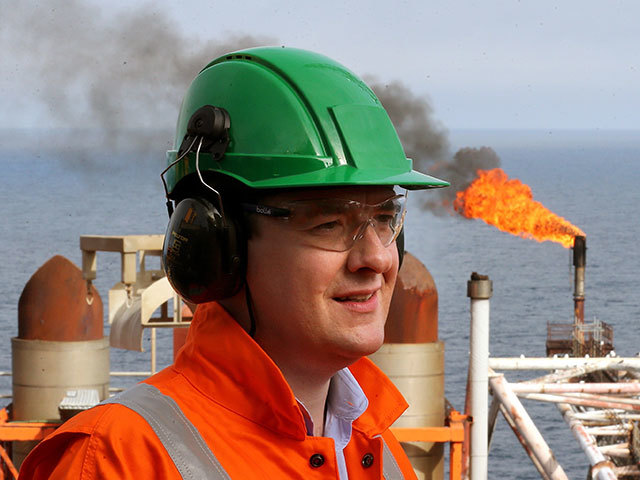
George Osborne has ordered a full review of North Sea taxes – but he will still press ahead with a £1billion raid on the oil and gas industry.
As well as a fresh look at the fiscal regime, the chancellor said the UK Government would “introduce a new allowance for ultra high pressure, high temperature fields to support billions of pounds of investment, thousands of jobs and a significant proportion of our energy needs”.
But not included in his speech was the decision to implement a series of measures mooted in his autumn statement.
They include plans for an extra tax on rigs and flotels coming into the North Sea to carry out work – a practice known as bareboat chartering.
With the industry in the grip of an exploration crisis – just 15 new wells were drilled last year – insiders believe the measure will drive away rigs and cost the industry up to £1billion.
The Treasury expects the cost to industry to be half that, however.
MORE ON BUDGET 2014
Opinion: Treasury driving further nails into drilling coffin
Video: Oil and Gas UK ‘perplexed’ by bareboat tax push
Opinion: No surprises for energy sector
Analysis: Experts warn of unhappiness over bareboat tax decision
PLUS READ MORE REACTION AND ANALYSIS IN TODAY’S PRESS AND JOURNAL
Mr Osborne also rubber-stamped changes to national insurance rules which will cost firms a further £300million a year by stripping many workers of “mariner” status.
The full tax review was broadly welcomed last night – but the other moves led to accusations that Mr Osborne had “ignored” Sir Ian Wood’s blueprint to maximise recovery from the UK Continental Shelf.
Oil and Gas UK boss Malcolm Webb said the review of the industry’s tax regime would help address the challenges and opportunities faced by the mature North Sea.
But he said firms would be “perplexed” by the decision to hit exploration with the bareboat tax.
“This can only increase costs on the UKCS, where operating costs have increased sharply in recent years and last year saw a rise of 15.5% to an all-time record of £8.9billion, and new developments are facing similar cost pressures.
“In addition, we fear that this move will drive drilling rigs – already in short supply – out of the UKCS. Exploration over the last three years has been at its lowest in the entire history of the industry in the UK.”
Sir Ian Wood’s review called for industry and government to work together to maximise recovery from the North Sea – a plan which will be spearheaded by a new regulator.
Yesterday, the chancellor announced his support for the fast-track start-up of the new regulator and having part of it operating by October.
Sir Ian avoided the bareboat controversy yesterday.
He said: “There’s a long way to go, but the DECC (Department of Energy and Climate Change) are clearly making good progress with the implementation programme and the Treasury’s strong backing is clearly very encouraging.”
But energy lawyer Bob Ruddiman, of Pinsent Masons, accused the chancellor of “ignoring” the Wood Review.
“Going ahead with controversial tax changes to bareboat chartering arrangements will dismay many in the industry, particularly following the chancellor’s commitment to support the recommendations of the Wood Review,” he said.
Martin Findlay, a tax partner at KPMG in Aberdeen, added: “This will weaken the UK’s competitive position for attracting investment.
“The fiscal review would have been better served including these changes (the bareboat tax) in its ambit rather than going ahead with this change.”
Recommended for you
